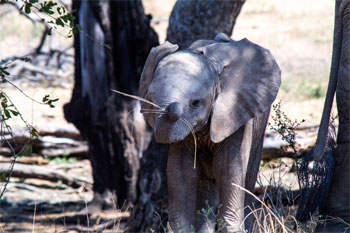Top Tips to make Aussie Households Eco-Warriors

Top Tips to make Aussie Households Eco-Warriors
With Australia ranking in the top five nations for animal extinction rate worldwide, new subscription video on demand app, Love Nature, is encouraging Aussie households to step up to protect and preserve our natural world this World Environment Day, 5 June.
Jo Parkinson, Managing Director of Love Nature, said that while Australians need to be thinking about their impact on the environment daily, World Environment Day provides a great opportunity to bring conservation issues to the forefront.
'Through our content partnership with WWF International, we have been able to witness the environmental consequences of human behaviour first hand. Occasions like this highlight the need for all Aussies to be more aware of their environmental footprint and the impact our decisions make on the future health of our world," she said.
'At Love Nature, we believe that small steps can create big change, so have provided a simple way for Aussies to give back, with a proportion of every subscription donated to global wildlife conservation projects such as Earth Hour and the Jane Goodall Institute. We also have the world's largest library of 4K Ultra-HD wildlife footage and programs which showcase the beauty of the natural world and help to educate viewers on the importance of protecting habitats and species for future generations."
To celebrate World Environment Day and help every local become an eco-warrior, the team from Love Nature has these tops tips:
Say no to plastic bags – It takes up to 1000 years for one plastic bag to break down, and in Australia we use approximately 3.92 billion plastic bags every day. Not only does this add to landfill but also ends up in our water ways and oceans, ultimately harming marine mammals and birds.
Plant a tree – Astonishingly one large tree can supply enough oxygen for four people and store nearly six kilograms of carbon[1], helping to offset the growing number of carbon emissions we release each year. And if you're feeling particularly green, take the time to plan 17 trees – enough to absorb approximately the same amount of carbon dioxide emitted from the average car per year.
Invest in rechargeable batteries – As the most common form of hazardous waste disposed by Australians, it's shocking to hear we spend around $400 million on batteries each year. Rechargeable batteries have up to 32 times less impact on the environment than disposable batteries and can be charged up top 1000 times, saving you money and reducing pollution and the potential adverse effects batteries can have on the planet.
Start composting – When green waste is added to your rubbish bin, it ends up in landfill and decomposes anaerobically, producing odorous gases and methane. These gases have a global warming potential 25 times greater than carbon dioxide. By composting your green waste, you can reduce your greenhouse gas emissions and allow natural decomposition using oxygen (aerobically) to occur, producing high quality and rich natural soil.
Unplug – More than one third of Australia's carbon emissions comes from our electricity consumption. By unplugging unused lights and appliances you can cut down approximately 20% of your household electricity consumption.
Forgo fast fashion – The fashion industry is the one of the world's biggest polluters, only second to oil. Australian's are the world's second largest consumer of new textiles, yet we send 85 per cent of the textiles we buy to landfill every year. Be sure to check the origins and sustainability credentials of the brands you purchase from and let quality over quantity be your rule of thumb.
Go paperless – It's easy to request your bills via email and share documents online, reducing the huge impact paper usage has on our resources. One tonne of paper requires approximately 20 full-grown trees and uses over 90,000 litres of water. Outrageously, this is only enough paper for five people, with Australian's on average using 230kg of paper per person every year.
MORE



